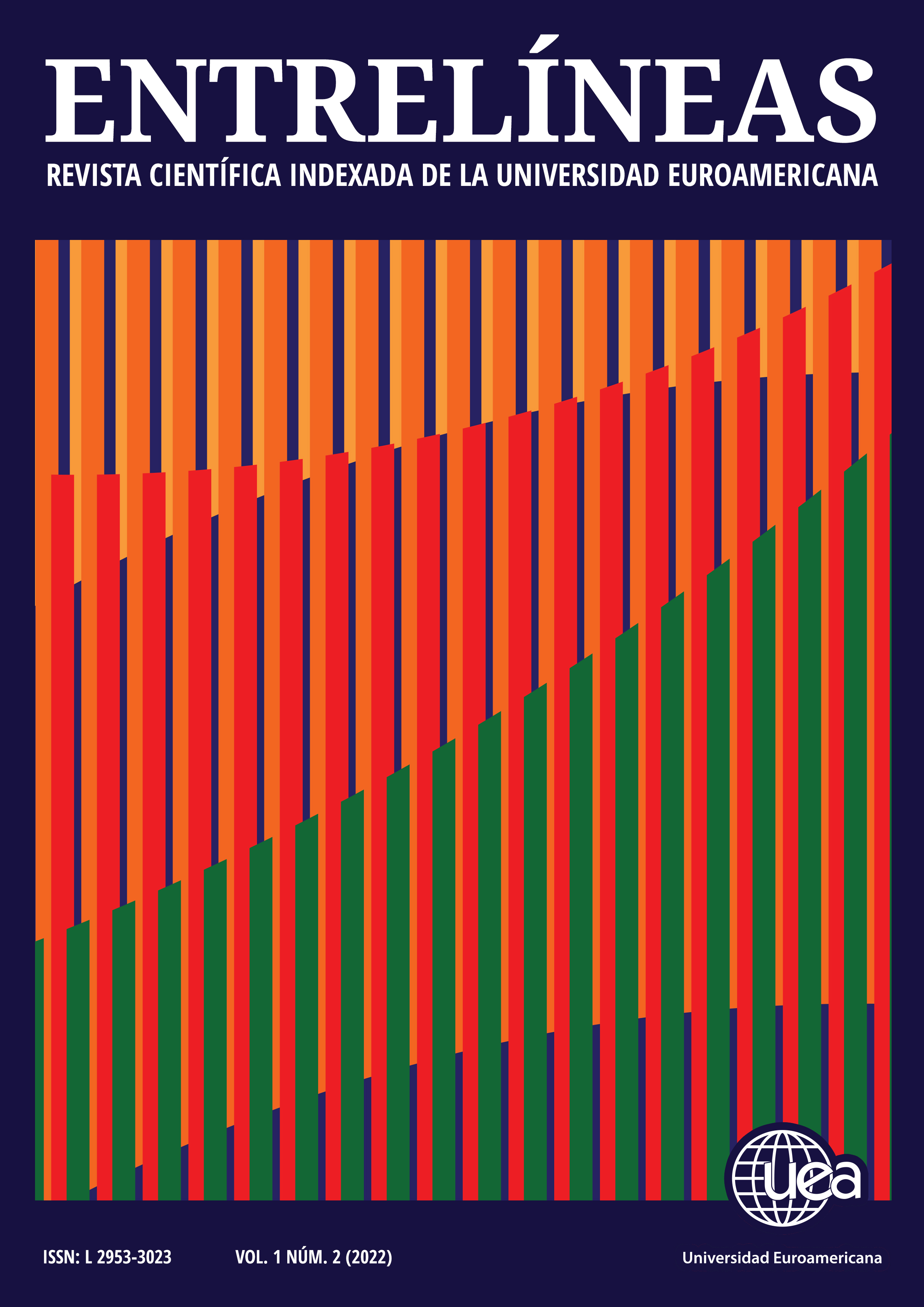Development of interpersonal values as a driver of student learning styles
DOI:
https://doi.org/10.56368/Entrelineas124Keywords:
Guidelines, interpersonal values, learning stylesAbstract
This proposal aims to generate a set of theoretical-practical guidelines that contribute to the development, reinforcement, and maintenance of the interpersonal values of students, as a guideline for guiding their learning styles within the framework of their potentialities, individual characteristics, needs, and realities of each particular context, derived from the research: interpersonal values and learning styles of the students of the Educational Institution of the South, municipality of Ipiales, Nariño, Colombia, which was developed with a sample of 110 students of the sixth grades of the three venues between 12 and 15 years of age. For the collection and analysis of information, observation and survey were used and, as instruments: the interpersonal values questionnaire (SIV) by Leonard Gordon, and the questionnaire of learning styles by Richard Felder and Linda Silverman (Felder and Silverman, 2002). The data were processed by means of descriptive statistics, using as statisticians the maximum average sums, which were interpreted by means of scales, adapted from the authors' correction sheets. The results indicate a moderate presence of interpersonal values and an appropriate balance between the extremes, represented by the style options considered in the proposal of Felder and Silverman (2002). In addition, a strong positive correlation was reported, which indicates an important relationship between the variables, a guideline for the generation of the proposal, which is focused on the reinforcement of values as a basis to enhance meaningful learning.
Downloads
References
Batista, E. (2007). Lineamientos pedagógicos para la enseñanza y aprendizaje. Universidad Cooperativa de Colombia.
Castro, L. (2015). Relación entre los estilos de aprendizaje y el tipo de aprendizaje que logran las estudiantes en la clase de tipos de defensa del sistema inmunologico de la asignatura de ciencias naturales de una institución educativa privada de Barranquilla. Universidad del Norte. https://manglar.uninorte.edu.co/bitstream/handle/10584/7539/relacion.pdf?sequence=1&isAllowed=y
Cazau, P. (2004). Estilos de Aprendizaje: Generalidades. https://cursa.ihmc.us/rid=1R440PDZR-13G3T80-2W50/4.%20Pautas-paraevaluarEstilos-de-Aprendizajes.pdf
Felder, R., & Silverman, L. (2002). Learning and teaching styles in engineering education. Engineering education, 78(7), 674-681.
González, J. (2003). El rendimiento escolar. Un análisis de las variables que lo condicionan. Universidad de Oviedo.
Gordon, L. (2010). Manual test SIV. Círculo de Estudio de Psicología. Universidad San Pedro.
Hernández, R., Fernandez, C., & Baptista, M. (2014). Metodología de la Investigación. Mc Graw Hill.
Hurtado, J. (2012). El proyecto de investigación. Comprensión holística de la metodología y la investigación. Editorial Sypal.
Leal, A. (1999). Propuesta didáctica. El maestro de preparatoria como promotor de valores en el proceso de enseñanza - aprendizaje. Universidad Autónoma de Nuevo León.
Martínez, L.; Murillo Martinez, H.; Martínez Leyva, D. (2017). Vida y obra de los pedagogos más influyentes. Red Durango de Investigadores Educativos, A. C.
Ministerio de Educación Nacional de Colombia (2013) Ley 1620. Sistema Nacional de Convivencia Escolar y Formación para el ejercicio de los Derechos Humanos, la Educación para la sexualidad y la prevención y mitigación de la violencia escolar.
Romo, A. y Aguilar (2016). Lineamientos generales de convivencia para la convivencia escolar. Ra Ximhai, vol. 12, pp. 17-31.
Rosas, A. (2019). Valores interpersonales y estilos de aprendizaje en estudiantes de la institución educativa del Sur, Ipiales, nariño – Colombia. Societas, 21(2).
Vygotsky, L. (1978). La mente en la sociedad: El desarrollo del mental superior. Universidad de Harvard.
Downloads
Published
Issue
Section
License

This work is licensed under a Creative Commons Attribution-NonCommercial 4.0 International License.
You are free to:
- Share — copy and redistribute the material in any medium or format
- Adapt — remix, transform, and build upon the material
- The licensor cannot revoke these freedoms as long as you follow the license terms.
Under the following terms:
- Attribution — You must give appropriate credit , provide a link to the license, and indicate if changes were made . You may do so in any reasonable manner, but not in any way that suggests the licensor endorses you or your use.
- NonCommercial — You may not use the material for commercial purposes .
- No additional restrictions — You may not apply legal terms or technological measures that legally restrict others from doing anything the license permits.










